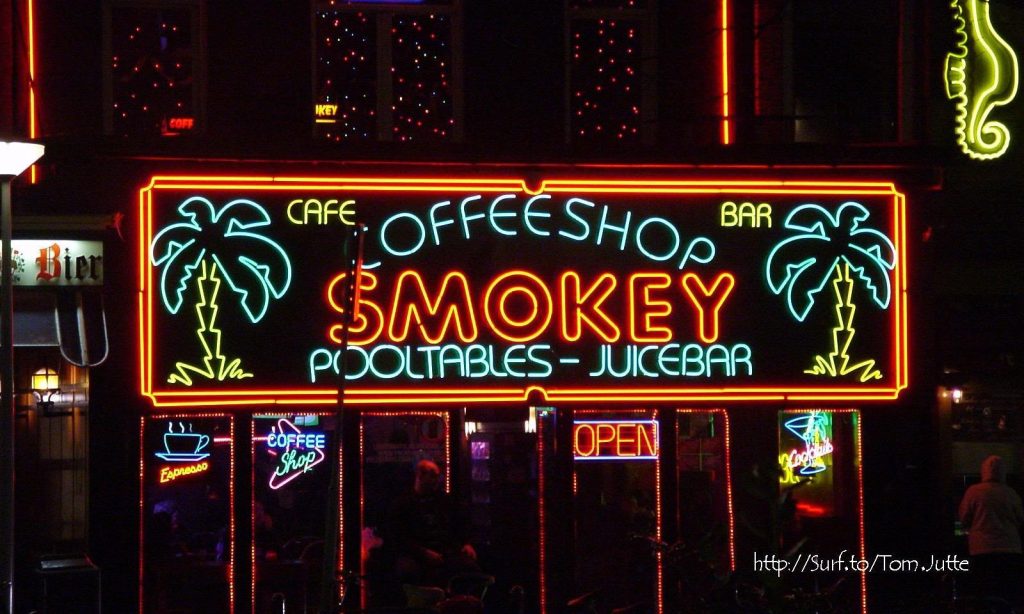In April, the Mayor of Amsterdam, Femke Halsema, proposed a ban on the city’s coffeeshops for all non-residents via the so-called i-Criterion. Now, the city council has rejected the proposal. However, while the tourist ban has been rejected, for now, new recommendations have also been tabled. Additionally, the mayor stated that she has no intention of dropping the i-Criterion issue any time soon.
Amsterdam’s Coffeeshops Will Continue Welcoming Tourists


In April, we reported on a plan by the Mayor of Amsterdam to ban tourists from the city’s famed coffeeshops. The proposal would have seen the introduction of the so-called i-Criterion, or Criterion I, requiring coffeeshop visitors to show proof of residency.
Unsurprisingly, the Amsterdam City Council has now rejected the proposal. However, the rejection of the i-Criterion has also come with new recommendations.
To follow the evolution of coffeeshops in Amsterdam along with the latest in cannabis legalization and lifestyle, download our free cannabis news app.
Amsterdam City Council Says No to Criterion I
The Amsterdam City Council voted last week in the General Affairs Committee against the introduction of Criterion I. As such, they voted down the ban on coffeeshops for tourists, which current Amsterdam Mayor Femke Halsema had dreamed up.
Most political groups, including the left-wing coalition PvdA, GroenLinks, and D66, opposed the introduction of the Residency Criterion and thus the ban on coffeeshops for tourists.
“We expect a massive shift to street trade. We think it is not wise to opt for millions of illegal drug transactions,” said Rob Hofland (D66), who spoke out against the plan.
New Recommendations for Amsterdam
While rejecting Criterion I, Rob Hofland also proposed a strict control framework:
“We could ask to inspect the books. For coffeeshops that refuse, we can monitor them more strictly. Coffeeshops that participate, we can give them benefits, like having a larger inventory.”
The committee also discussed other proposals, such as banning consumption in the streets and intervening in places where there is an overconcentration of coffeeshops.
So the Council asked that these proposals, as well as those of the coffeeshop industry, be considered.
Mayor Halsema Responds
In response to the proposals and the rejected plan, Femke Halsema explained to the Council that she wanted to reduce the demand for cannabis in the city.
“None of your proposals reduce that demand,” the mayor said. “The solutions you are proposing do not relate to the problem we are identifying. We shouldn’t have unreasonable expectations about banning street consumption.”
She continued, “There is so much money in this market that it is attractive for big crime to invest in.”
Halsema also criticized opponents of her plan. “You are relying solely on your intuition. Our studies show that the number of tourists, who come to the city to consume, will decrease, and they will also come less often.”
The mayor cautioned against closing cafes. “You don’t just do that. Suppose you reduce the number of cafes, without doing anything about the number of people who buy there, the turnover of a small number of cafes increases. It’s easier to do something about favoritism.”
The Return of the “i-Criterion” for Amsterdam?
Now that there is no majority, the Criterion I issue should theoretically be dropped. Mayor Halsema, however, wants to keep it in mind.
“No hard feelings, but it’s simmering. We’re letting Criterion I simmer in your heads,” she said.
Reacting to the AT5 article, Simone van Breda, president of the coffeeshop union, wrote on LinkedIn: “I think the article is slightly premature. But we are cautiously positive. It still has to go to the Council, but there is no majority in the Council for Criterion I so far.”
The municipality, accompanied by the police and the Amsterdam public prosecutor, will now draft a letter to respond to the city council’s proposals and the coffeeshop industry.
—
(Featured image by Tom Jutte (CC BY-NC-ND 2.0) via Flickr)
DISCLAIMER: This article was written by a third-party contributor and does not reflect the opinion of Hemp.im, its management, staff, or its associates. Please review our disclaimer for more information.
This article may include forward-looking statements. These forward-looking statements generally are identified by the words “believe,” “project,” “estimate,” “become,” “plan,” “will,” and similar expressions. These forward-looking statements involve known and unknown risks as well as uncertainties, including those discussed in the following cautionary statements and elsewhere in this article and on this site. Although the Company may believe that its expectations are based on reasonable assumptions, the actual results that the Company may achieve may differ materially from any forward-looking statements, which reflect the opinions of the management of the Company only as of the date hereof. Additionally, please make sure to read these important disclosures.
First published by Newsweed, a third-party contributor translated and adapted the article from the original. In case of discrepancy, the original will prevail.
Although we made reasonable efforts to provide accurate translations, some parts may be incorrect. Hemp.im assumes no responsibility for errors, omissions, or ambiguities in the translations provided on this website. Any person or entity relying on translated content does so at their own risk. Hemp.im is not responsible for losses caused by such reliance on the accuracy or reliability of translated information. If you wish to report an error or inaccuracy in the translation, we encourage you to contact us.



Comments are closed for this post.